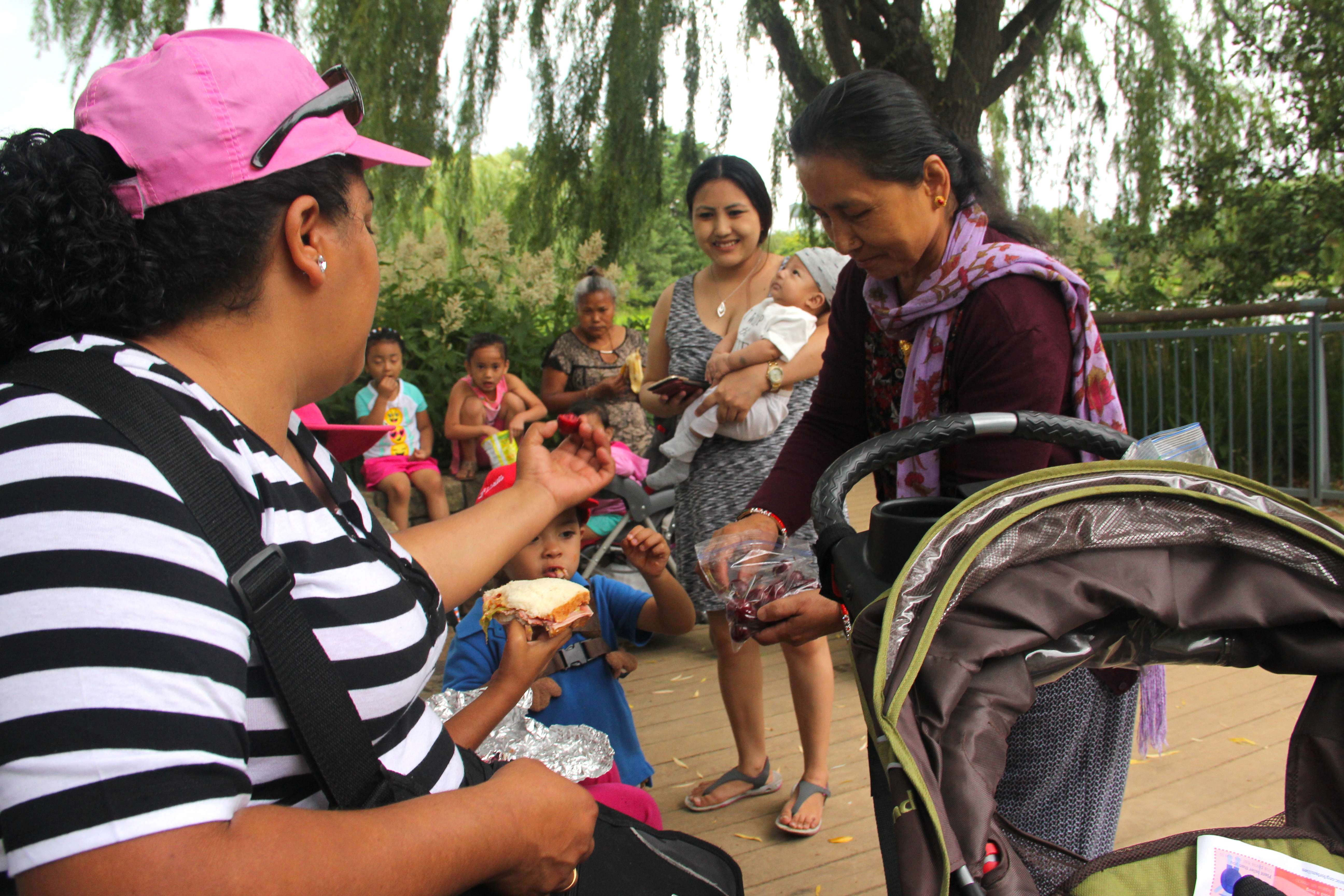Angelica Andrade (pictured above), a GED class student, came with the HECC Family Literacy program to the Garden with her two children, Manuel (pictured above), 3, and Cristina, 8. They enjoyed every minute of it– from searching for dragonflies and lily pads to picnicking by the fountains.
Yesenia Vargas, the Family Literacy Coordinator, said that summer field trips broaden horizons and keep families engaged in the program, which offers parenting classes and childcare during ESL and GED courses. Field trips are often financially out of reach for immigrant and refugee families, so “they are very grateful when these opportunities come up,” she said.
Angelica emigrated to the U.S. from Mexico and is striving for her GED with the goal of becoming an early childhood educator. Before starting her rigorous classes, Angelica worked as a cake decorator for the grocery chain Food 4 Less. Their fast paced work schedule caused her to develop carpel tunnel in her hands and she had to leave her job. After recovering with a physical therapist, luckily covered by Medicaid, her husband encouraged her to use the time to get the education she wanted.
“He’s very smart. I remember his words. He said you’re going to be your own social security,” Angelica said.
Without Angelica working, the family is on a very tight budget. Her husband makes $20 per hour as a carpenter, bringing their annual income to $38,400 for her family of four.
“Most of our families don’t have the resources to pay museum or park fees, so they are very grateful when these opportunities come up,” said Yesenia. For the average family of four, it would cost about $40 to travel by bus and train to the garden, and it’s a two-hour roundtrip compared to a free 30-minute bus ride.
Though Angelica is short on funds, she brought extra food for other Family Literacy families on the trip. Three families–Angelica’s, one from Bhutan, and one from Myanmar– take a rest from walking the grounds to eat. Angelica set off a chain of offerings, using food as the universal language across cultures and continents. She laid out an extra ham and cheese sandwich for anyone who is hungry. Gupta, a grandmother in the Family Literacy home visiting program, shuffled over to Angelica’s children Cristina and Manuel to offer green grapes. In return, Angelica shared cookies and apple slices marinated in lime and salt.

Munching on treats, Cristina and Jesika, another child eating lunch with the group, became more curious of each other. “What do you speak?” Cristina asked. “Nepali and Hindi, but I’m learning Spanish!” Jesika said. Cristina rattled off words for Jesika to translate, like casa (house) and hermana (sister).
Soon enough, the children are running through the Japanese Garden and dipping their hands into the small waterfalls while their parents aren’t watching. They deemed the round metal sculptures dinosaur eggs. Before leaving, they come upon a large flock of geese covering the hills, some as tall as Manuel.
“Let’s sing to the birds, it’ll make them happy!” Jesika said, and the kids began to sing together.
